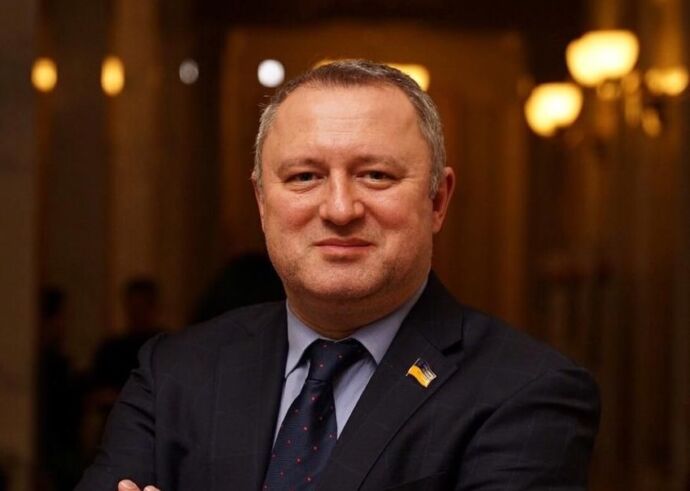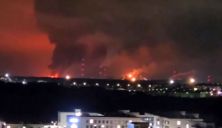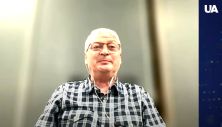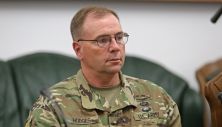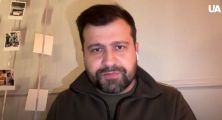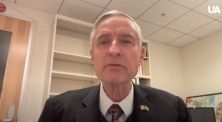Back in September 2014, the law “On the special order of local self-government in certain districts of Donetsk and Luhansk regions” was adopted (the so-called law on the “special status” of Donbas). In fact, it comes into force only after the elections in the occupied part of Donbass. And all its provisions are designed for the liberated territory.
After the adoption of the law in 2014, the document was initially valid for 3 years. Therefore, on October 6, 2017, the Rada again voted for the “special status” of Donbass, extending it for another year. During the following 2018-2020, the law was also extended for a year.
The current edition expires on December 31, 2021.
When to expect the next extension by the Verkhovna Rada of the law “On the special order of local self-government in certain districts of Donetsk and Luhansk regions”? Why is the document planned to be extended only for a year? Is there progress in the work of the Tripartite Contact Group? What will affect the unblocking of the CPVR in Donbass?
We are talking about this and not only in the program “Vzglyad s Bankova” of UA TV channel with the People’s Deputy of Ukraine (“Servant of the People” faction), the representative of Ukraine in the political subgroup of the Tripartite Contact Group (TCG) to resolve the situation in Donbass Andriy Kostin.
Oleh Borisov hosts the program.
– When is the Verkhovna Rada expected to continue the law on the special order of local self-government in temporarily occupied territories?
– We are waiting for the adoption of the bill on the extension of the current law until the end of the year. It has already been submitted to the Verkhovna Rada. I think it will happen in the plenary week, which starts on December 13-14.
– As in previous years, they want to extend the document for a year. Why was this tactic chosen?
– In principle, this has happened many times.
In accordance with the decisions of the leaders of the Normandy format, adopted at the Paris Summit in December 2019, a common position was adopted that the current law should include the so-called Steinmeier formula. Consultations on this are ongoing in the format of the Tripartite Contact Group. Unfortunately, these consultations are not completed now, so we will continue for 1 year, hoping that these consultations will take place next year, and we will be able to adapt this law to the decisions of the leaders of the Normandy format. And then we will adopt it in the form in which it is necessary for this to contribute to a political settlement [of the conflict in Donbas].
– A regular meeting of the Tripartite Contact Group and working subgroups took place this week. But the final message of the Ukrainian delegation does not mention a subgroup on political issues at all. What’s going on in it?
– In the subgroup on political issues, where I represent the Ukrainian delegation in the TCG, there is a very difficult discussion.
A year ago, at the level of the TCG, it was decided that the political subgroup should develop a so-called action plan for the implementation of the Minsk agreements. But because the approaches are very different to how to implement the Minsk agreements, our delegation submitted its draft plan a year ago. It is not supported, unfortunately, by our counterparts in the negotiations. Moreover, the Russian delegation refuses to take an active part in the discussion of this mandate of the Tripartite Contact Group, which, in my opinion, indicates that it does not want to assume the appropriate responsibilities that it should bear as a member of the TCG.
In this regard, in recent months, the Ukrainian delegation in the political subgroup has repeatedly raised the issue of the need to consider, including traditional issues for the political subgroup. In particular, the adaptation of the law “On the special order of local self-government” in connection with the inclusion in this law of the so-called Steinmeier formula. And here, too, we can not reach mutual understanding – our counterparts on consultations do not want to continue consideration of this bill.
That is why the work in the political subgroup now has the character of such discussions – both on what to do with the action plan, and on our proposal to return to work on the bills.
Another important point here is that the adoption of laws is the main element of a political settlement. This is not only the law on the special order of local self-government, but also the law on amnesty, the law on the peculiarities of local elections.
In our opinion, this work is blocked due to the fact that the Russian Federation is not ready and is not going to promote this political settlement at the moment.
– In general, is there any progress in the work of the TCG now? Does everything remain only at the level of discussions?
– You know, sometimes the discussion is progress. Because we had a number of meetings, it lasted quite a long time in some periods when we could not communicate properly at all.
The first such period was connected with the practical refusal of the delegation of the Russian Federation and its guests to work in a political subgroup. Last year, they referred to the adoption by the Verkhovna Rada of a resolution on holding local elections on the territory of Ukraine, believing that this resolution in some way does not comply with the Minsk agreements. But this is completely untrue and was used as an excuse to block the work of the political subgroup.
We can also recall an episode when a guest from the Russian Federation included citizen [Maya] Pyrohov (from the DPR, ed.), Who was convicted in Ukraine under an article related to terrorist activities. The position of the head of the Ukrainian delegation, Leonid Kravchuk, was immediately communicated to our OSCE moderators that we would not be able to take part in the work until a person convicted of terrorist activities in Ukraine took part. And this, too, blocked the work of the political subgroup for a long time, until they convinced that the citizen of Pirogov to leave the meeting of the political working group. And we at least resumed the discussion.
Therefore, it is necessary to understand what we mean by the word “progress”. And the possibility of holding a discussion, in comparison with those meetings when there was no such discussion at all, is also a kind of progress.
But the issues of political settlement are closely connected with other issues that are on our agenda: both security and humanitarian issues. And the flow of problems from one group to another – also exists.
In general, I emphasize that now TCG works in a fairly normal mode. Meetings of all working groups are held. They are not always full of results, but we understand that if our position is justified, if it is in line with both the Minsk agreements and the decisions of the leaders of the Normandy format, then we do not tire of repeating the need to move forward.
As an example: this Wednesday at the meeting of the Tripartite Contact Group we once again stated that at any moment we are ready to fully ensure the movement and passage of people at the new CPVV (checkpoints of entry-exit, – ed.) In Shchastia and Zolote (Luhansk region). , – ed.), which we, in turn, built, gave security guarantees. I would even say that checkpoint Zolote and Shchastia are formally open from the territory controlled by the Ukrainian government. Unfortunately, our counterparts do not want to open and allow people to pass through these two checkpoints.
But this does not mean that we should just give up and forget. In any case, we will insist that the humanitarian component of the negotiations be present at all times, regardless of the political agenda and regardless of what is happening in interstate relations at another level.
Because the resolution of humanitarian issues must be outside politics, and it must be decided on a priority basis.
Therefore, I cannot say that there is any kind of material progress, but even the existence of dialogue now, and the work of all working groups, and the work of the TCG is also an element of positivity.
– That is, the question of opening KPVV depends on security guarantees?
– We have given security guarantees, our checkpoints are ready and open. But a person cannot just go through our checkpoints and then stop – that is, it is necessary to open the checkpoints on the other side, and security guarantees are needed on their part so that people can move safely through these C checkpoints. That is, we, for our part, did everything – built checkpoints, opened them, gave security guarantees.
– And another important issue is a meeting within the “Quartet of Normandy” at the level of foreign ministers. Is this meeting real by the end of this year?
– Despite all the statements that are heard primarily from Moscow, we still look with optimism. We will make sure that the meeting at the level of foreign ministers takes place this year.
– How did the departure of Oleksiy Reznikov from the Ministry of Reintegration to the Ministry of Defense affect the work of the Ukrainian delegation in the TCG?
– The composition of the delegation was changed. Oleksiy Yuriyovych [Reznikov] was the first deputy head of the Ukrainian delegation to the TCG. I am currently under a temporary presidential decree. Therefore, I kind of continue the work conducted by Oleksiy Reznikov.
I don’t think we have changed. Our delegation works quite well, we have all the information we need to work. And this replacement took place in a fairly calm mode.
Of course, we are sorry that Oleksiy Yuriyovych will not be able to continue working in the Tripartite Contact Group. But this is difficult to reconcile with the new role of [Minister of Defense]. But the delegation works in a coordinated mode, so everything is fine in this sense.
– How does the delegation interact with the new head of the Ministry of Reintegration Iryna Vereshchuk?
– We interact with Iryna Vereshchuk. She constantly monitors what is happening in the work of the TCG, we are in constant dialogue. It now has an organizational period, which is very important in order to fully embark on its new role. And I am sure that we will have absolute cooperation in the work of the TCG with the relevant minister and the ministry. And we, as a delegation to the TCG, for our part, are ready to fully contribute to the successful work of Irina Vereshchuk as Minister for Reintegration.
It will be recalled that the National Security and Defense Council published a glossary for the authorities and the media. It is designed to prevent Russia from legitimizing the occupation with its terminology and phrases.

